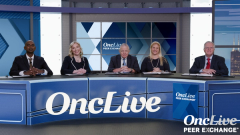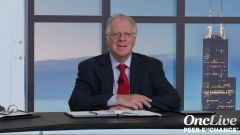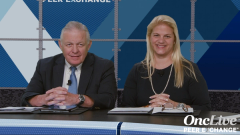
Early-Stage HER2+ Breast Cancer: Novel Perioperative Treatment Strategies
Subject matter experts in breast oncology discuss ongoing clinical trials in early-stage HER2+ breast cancer that focus on perioperative therapies.
Episodes in this series

Transcript:
Andrew Seidman, MD: Given the potential that we could be seeing more HER2 [human epidermal growth factor receptor 2] low cells post neoadjuvant therapy, [this is a] good segue. Tiffany, maybe you can tell us about some ongoing trials of examining new agents in the neoadjuvant setting, and Stephanie in the adjuvant setting.
Tiffany Traina, MD: Happy to. In the neoadjuvant setting, I think we’ve seen impressive results from trastuzumab deruxtecan in the metastatic setting from trials like DESTINY-Breast03. So there’s a large neoadjuvant trial, DESTINY-Breast11, and this trial is looking at a control arm of dose-dense AC (adriamycin, cyclophosphamide) followed by paclitaxel/trastuzumab/pertuzumab as the standard of care control. With an investigational arm of trastuzumab deruxtecan for 8 cycles, and another investigational arm of trastuzumab deruxtecan for 4 cycles followed by taxane/trastuzumab/pertuzumab.
Andrew Seidman, MD: So pretty much 24 weeks of therapy in each arm?
Tiffany Traina, MD: Right, trying to control for length or duration of treatment. So that is 1 neoadjuvant study that I think will answer some important questions. We also have studies like the COMPASS portfolio of neoadjuvant trials, looking at a de-escalation approach. In that setting neoadjuvant paclitaxel/trastuzumab/pertuzumab is being delivered, primary endpoint is pathologic complete response, and physicians and patients are able to jointly decide whatever they’d like to do in the adjuvant setting based on results from surgery. And there was an additional COMPASS trial looking at after-neoadjuvant therapy, in the setting of residual disease, [seeing] whether the control arm of T-DM1 [trastuzumab emtansine] remains a standard vs T-DM1 [trastuzumab emtansine] plus tucatinib, which I think we may talk about a bit later. But [it’s] the idea of combining both an antibody drug conjugate and a TKI (tyrosine kinase inhibitor) to perhaps get some blood brain barrier penetration and benefit.
Andrew Seidman, MD: That doublet is currently being examined in stage IV breast cancer.
Tiffany Traina, MD: Right.
Stephanie Graff, MD: I’ll just add to that. We’ve already touched on ATTEMPT 2.0, which is looking at maybe a de-escalation strategy, where we take those earliest-stage, small, primary HER2 positive breast cancers and are randomizing them to paclitaxel/trastuzumab vs T-DM1 [trastuzumab emtansine] for 6 cycles. We saw with ATTEMPT 1, which was a longer duration of T-DM1 [trastuzumab emtansine]. Patients had a lot of toxicity with the longer duration of T-DM1 [trastuzumab emtansine]. So this is an attempt, hence the name of the trial, to recreate that, hopefully with a more favorable toxicity profile.
Andrew Seidman, MD: It’s an intriguing idea because we’ve seen some tantalizing clues that shorter may not be worse. In terms of the 6- vs 12-month trastuzumab trials, and the FinHer trial.
Stephanie Graff, MD: Exactly. Then we also have DESTINY-Breast05, which is looking at trastuzumab deruxtecan as a KATHERINE-like trial, where we’re comparing patients with residual disease after neoadjuvant chemotherapy T-DM1 [trastuzumab emtansine] vs trastuzumab deruxtecan, and I think the breast medical oncology community is pretty excited about that as well.
Transcript edited for clarity.










































